一、SpringBoot静态资源目录
1.1介绍
在web开发中,静态资源的访问是必不可少的,如:图片、js、css等资源的访问,SpringBoot对静态资源访问提供了很好的支持,基本使用默认配置就能满足开发需求。
1.2 位置和命名
在传统的web项目中,静态资源放在项目的WebRootWEB-INF目录下,SpringBoot框架默认提供静态资源目录,在classpath(src/main/resources)下,目录名需要符合如下规则:
/static
/public
/resources
/META-INF/resources
1.3使用
这四个目录可以在项目中任意创建一个即可,如只创建一个static文件夹存放静态资源,它们的功能都是一样的,需要注意的是:这几个目录的名称不能写错,使用时,在地址栏中输入资源的名称就可以了,如:在static中放入my.js文件,在地址栏输入:http//localhost:8080/my.js,即可直接访问到该资源了。
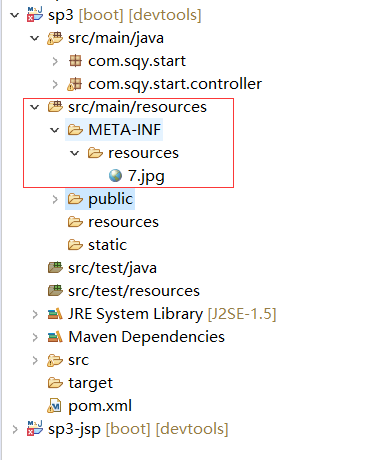

二、SpringBoot集成JSP
2.1 介绍
由于JSP这种技术本身有很多缺陷,所以SpringBoot默认是不支持JSP的,但是如果我们要使用JSP,那需要SpringBoot整合JSP,在整合JSP的时候,需要注意与原来的操作有所不同,项目需要打成war包,因此在创建项目的时候需要注意。
jsp本质是一个Servlet,纯java代码,不利于维护,也不便于继承
jar包和war包的区别?
2.2 集成JSP的步骤
1.在创建Maven项目

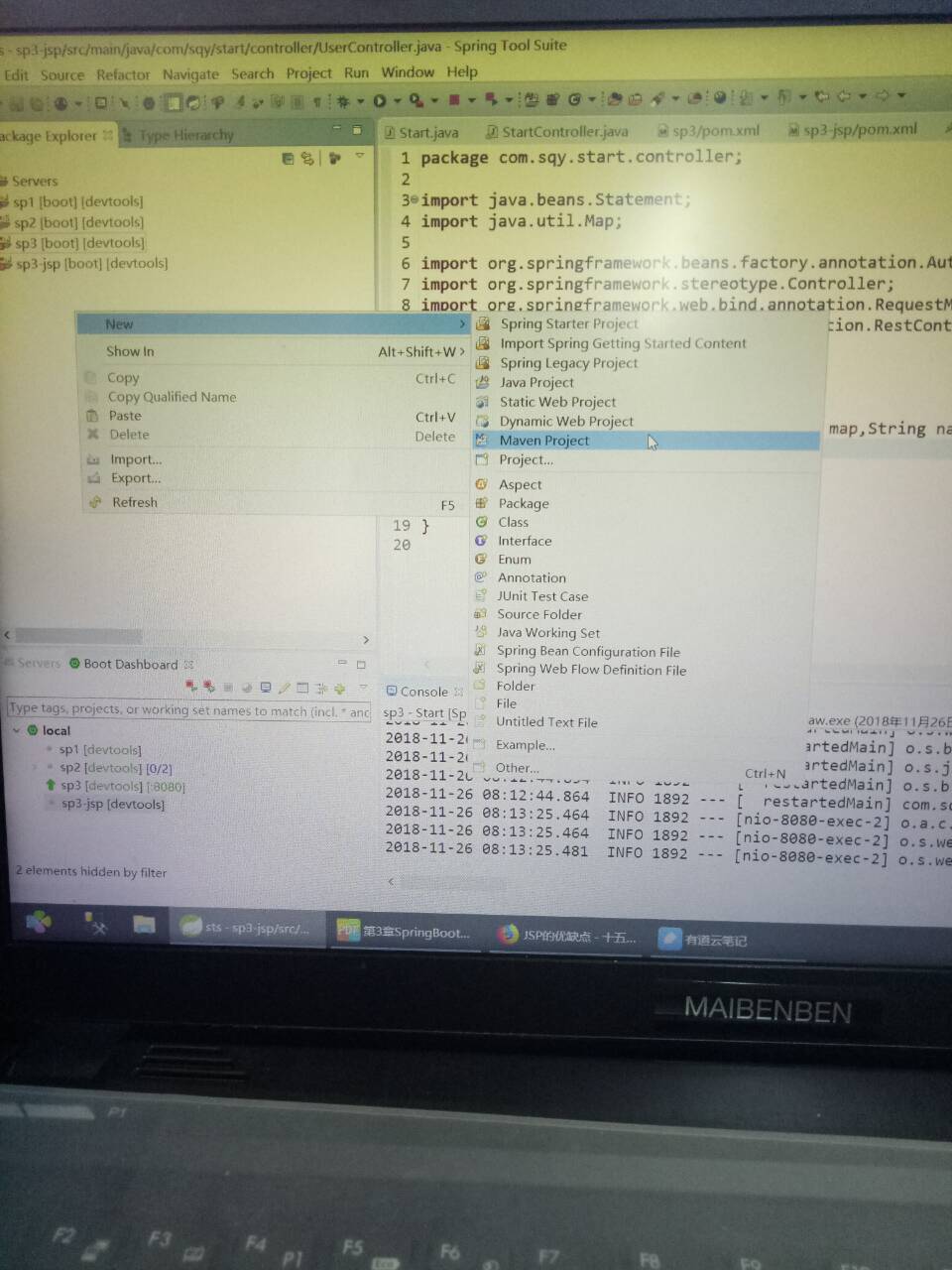
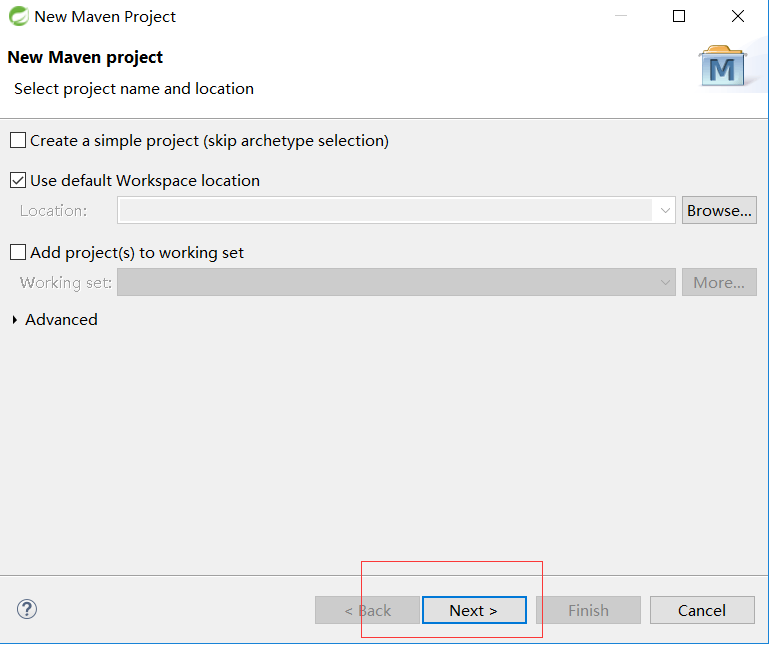
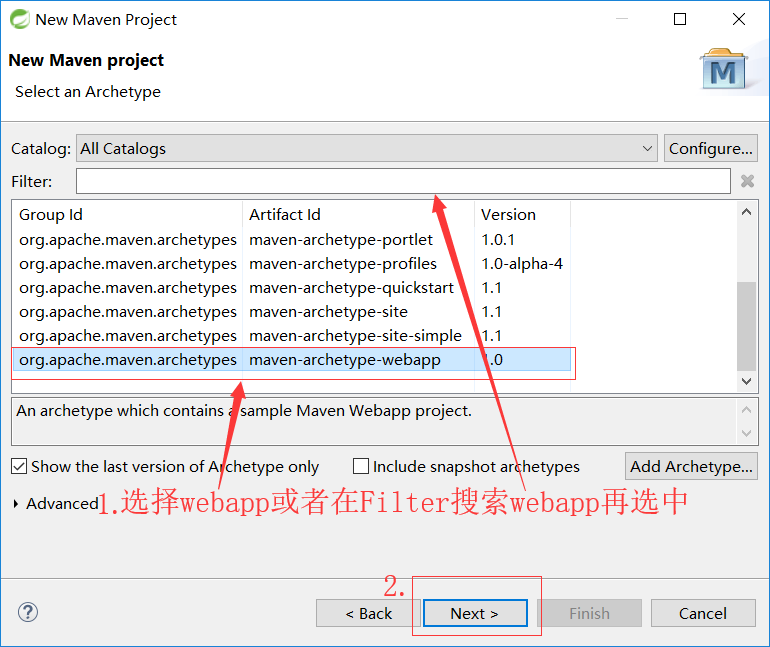
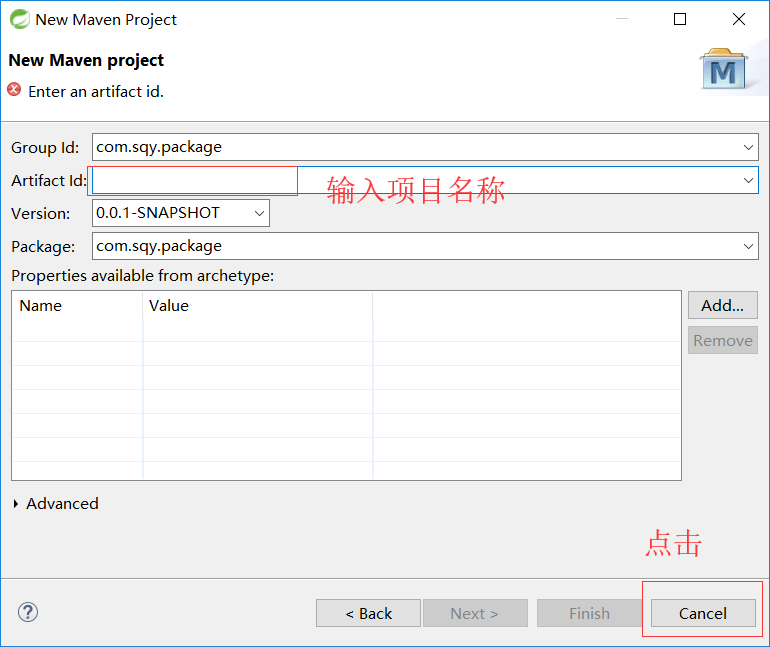
2.导入Pom依赖
在项目的pom.xml文件中导入常规依赖之外,需要额外添加JSP和JSTL两个依赖。
<!-- SpringBoot支持JSP的依赖,默认自带的tomact不支持JSP,所以引入这个依赖 --> <dependency>
<groupId>org.apache.tomcat.embed</groupId>
<artifactId>tomcat-embed-jasper</artifactId>
<scope>provided</scope> </dependency> <!-- JSP页面使用JSTL标签 --> <dependency>
<groupId>javax.servlet</groupId> <artifactId>jstl</artifactId> </dependency>
完整pom.xml
1 <parent> 2 <groupId>org.springframework.boot</groupId> 3 <artifactId>spring-boot-starter-parent</artifactId> 4 <version>2.0.4.RELEASE</version> 5 <relativePath/> <!-- lookup parent from repository --> 6 </parent> 7 <!-- 项目设置:编码格式UTF-8 --> 8 <properties> 9 <project.build.sourceEncoding>UTF-8</project.build.sourceEncoding> 10 <project.reporting.outputEncoding>UTF-8</project.reporting.outputEncoding> 11 <java.version>1.8</java.version> 12 </properties> 13 <dependencies> 14 <!--单元测试依赖 --> 15 <dependency> 16 <groupId>junit</groupId> 17 <artifactId>junit</artifactId> 18 <version>3.8.1</version> 19 <scope>test</scope> 20 </dependency> 21 <!-- Spring Boot SpringMVC框架依赖 --> 22 <dependency> 23 <groupId>org.springframework.boot</groupId> 24 <artifactId>spring-boot-starter-web</artifactId> 25 </dependency> 26 <!-- Spring Boot 测试依赖 --> 27 <dependency> 28 <groupId>org.springframework.boot</groupId> 29 <artifactId>spring-boot-starter-test</artifactId> 30 <scope>test</scope> 31 </dependency> 32 <!-- 热部署 --> 33 <dependency> 34 <groupId>org.springframework.boot</groupId> 35 <artifactId>spring-boot-devtools</artifactId> 36 <optional>true</optional> 37 <!-- optional=true,依赖不会传递,该项目依赖devtools;之后依赖myboot项目的项目如果想要使用 38 devtools,需要重新引入 --> 39 <scope>true</scope><!-- 热部署 --> 40 </dependency> 41 <dependency> 42 <groupId>org.springframework.boot</groupId> 43 <artifactId>spring-boot-configuration-processor</artifactId> 44 <optional>true</optional> 45 </dependency> 46 <!-- SpringBoot支持JSP的依赖 --> 47 <dependency> 48 <groupId>org.apache.tomcat.embed</groupId> 49 <artifactId>tomcat-embed-jasper</artifactId> 50 <scope>provided</scope> 51 </dependency> 52 <!-- JSP页面使用JSTL标签 --> 53 <dependency> 54 <groupId>javax.servlet</groupId> 55 <artifactId>jstl</artifactId> 56 </dependency> 57 </dependencies> 58 <build> 59 <plugins> 60 <!-- SpringBoot插件 --> 61 <plugin> 62 <groupId>org.springframework.boot</groupId> 63 <artifactId>spring-boot-maven-plugin</artifactId> 64 </plugin> 65 </plugins> 66 <!-- SpringBoot项目打包jar名称 --> 67 <finalName>sp3-jsp</finalName> 68 </build>
3.配置视图解析
出于安全考虑,SpringBoot推荐将JSP页面放入到项目的webapp/WEB-INF/view目录下,需要在application.properties配置文件中加入如下内容:
#视图前缀
spring.mvc.view.prefix=/WEB-INF/view/
#视图后缀
spring.mvc.view.suffix=.jsp
WEB-INF对于用户是不可见的,让js页面对用户不可见。
4.案例测试
4.1 新建控制器类(UserController.java)处理请求,内容如下:
1 package com.sqy.start.controller; 2 3 import java.util.ArrayList; 4 import java.util.List; 5 6 import org.springframework.stereotype.Controller; 7 import org.springframework.web.bind.annotation.RequestMapping; 8 import org.springframework.web.servlet.ModelAndView; 9 10 @Controller 11 public class UserController { 12 @RequestMapping("/getUser") 13 public ModelAndView getUser(ModelAndView view,String name) { 14 List<String> list = new ArrayList<String>(); 15 list.add(name); 16 list.add("张三"); 17 list.add("李四"); 18 view.addObject("list",list); 19 view.setViewName("user"); 20 return view; 21 } 22 }
4.2 在webapp/WEB-INF/下新建view目录,然后新建一个user.jsp文件,内容如下:
1 <%@ page language="java" import="java.util.*" pageEncoding="UTF-8"%> 2 <%@ taglib prefix="c" uri="http://java.sun.com/jsp/jstl/core" %> 3 <% 4 String path = request.getContextPath(); 5 String basePath = request.getScheme()+"://"+request.getServerName()+":"+request.getServerPort()+path+"/"; 6 %> 7 8 <!DOCTYPE HTML PUBLIC "-//W3C//DTD HTML 4.01 Transitional//EN"> 9 <html> 10 <head> 11 <base href="<%=basePath%>"> 12 13 <title>My JSP 'MyJsp.jsp' starting page</title> 14 15 <meta http-equiv="pragma" content="no-cache"> 16 <meta http-equiv="cache-control" content="no-cache"> 17 <meta http-equiv="expires" content="0"> 18 <meta http-equiv="keywords" content="keyword1,keyword2,keyword3"> 19 <meta http-equiv="description" content="This is my page"> 20 <!-- 21 <link rel="stylesheet" type="text/css" href="styles.css"> 22 --> 23 24 </head> 25 26 <body> 27 <c:if test="${not empty list }"> 28 <c:forEach items="${list }" var="str" varStatus="sta"> 29 ${sta.count }-------->${str }<br/> 30 </c:forEach> 31 </c:if> 32 <c:if test="${empty msg }"> 33 <h5>page,request,session,application四个对象属性中msg都为null</h5> 34 </c:if> 35 </body> 36 </html>
4.3定义主模板,启动类
1 package com.sqy.start; 2 3 import org.springframework.boot.SpringApplication; 4 import org.springframework.boot.autoconfigure.SpringBootApplication; 5 6 @SpringBootApplication 7 public class Start { 8 public static void main(String[] args) { 9 SpringApplication.run(Start.class, args); 10 } 11 }
4.4启动项目,在浏览器中输入http://localhost:8080/getUser?name=Tom,运行效果如下:
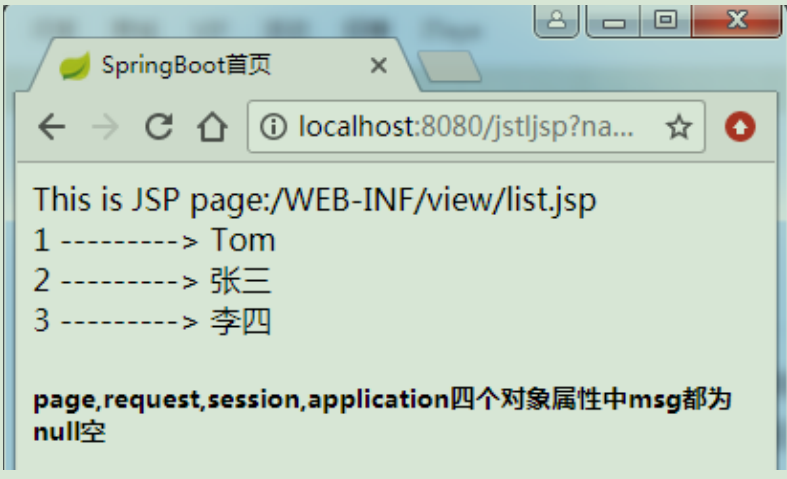
打war包发布项目
1.修改主程序的入口函数,打成war包需要继承org.springframework.boot.context.web.SpringBootServletInitializer类,覆盖config(SpringApplicationBuilder)方法。
1 package com.sqy.start; 2 3 import org.springframework.boot.SpringApplication; 4 import org.springframework.boot.autoconfigure.SpringBootApplication; 5 import org.springframework.boot.web.servlet.support.SpringBootServletInitializer; 6 7 @SpringBootApplication 8 public class Start extends SpringBootServletInitializer { 9 public static void main(String[] args) { 10 SpringApplication application = new SpringApplication(Start.class); 11 application.setAddCommandLineProperties(false); 12 application.run(args); 13 } 14 /** 15 * 需要把web项目打成war包运行时需要重新此方法 16 */ 17 @Override 18 protected SpringApplicationBuilder configure(SpringApplicationBuilder builder) { 19 return builder.sources(Start.class); 20 } 21 }
2.打包:右键项目 --> Run as --> Maven build... 输入clean package命令
本阶段需要注意的时,需修改pom.xml中项目的打包的方式为war,即
<packaging>war</packaging>
3. 运行
在放置war包的目录下,右键点击空白处+按shift键,选择:在命令窗口打开,输入java -jar 包名.war即可。
win10:右键点击空白处+按shift键,选择:在此处打开Powershell窗口,输入java -jar 包名.war即可。
三、SpringBoot集成Quartz框架
3.1介绍
Quartz是一个任务调度框架,它的使用场景是:
想每个月10号,信用卡自动还款
想每隔一个小时,备份自己的学习笔记到云盘
这些问题总结下来就是:在某一个有规律的事件做某件事情,并且事件的触发条件可以非常复杂,例如每月最后一个工作日的17:50,复杂到需要一个专门的框架来做这个事情,而Quartz就是做这个的,给它一个触发条件的定义,它会负责到了时间点触发相应的工作。
3.2 SpringBoot整合Quartz的步骤:
1.引入Quartz依赖:
1 <!-- pom文件 Spring Quartz依赖 --> 2 <dependency> 3 <groupId>org.quartz-scheduler</groupId> <artifactId>quartz</artifactId> 4 <version>2.2.1</version> 5 <exclusions> 6 <exclusion> 7 <artifactId>slf4j-api</artifactId> <groupId>org.slf4j</groupId> 8 </exclusion> 9 </exclusions> 10 </dependency>
2.使用注解@Configuration定义一个配置类
1 package com.sqy.start.tools; 2 3 import java.text.SimpleDateFormat; 4 5 import org.springframework.context.annotation.Bean; 6 import org.springframework.context.annotation.Configuration; 7 8 @Configuration 9 public class ConfigMyTools { 10 @Bean("dateFormat") 11 public SimpleDateFormat dateFormat() { 12 return new SimpleDateFormat("yyyy-MM-dd HH:mm:ss"); 13 } 14 } 15
@Configuration,@Bean这两个注解代替xml配置,@Configuration相当于xml中的标签,@Bean相当于标签,通常两者结合使用。
@Configuration类上加,代表此类变成了配置类,相当于xml
@Bean方法上加入bean会把本方法生bean并放到Spring容器中
3.为了方便看清楚任务调度的次数,我们声明一个辅助类:
1 package com.sqy.start.tools; 2 3 import org.springframework.stereotype.Component; 4 5 @Component 6 public class MyTask { 7 private int count = 0; 8 public void say() { 9 System.out.println("SpringBoot任务调度次数:"+count++); 10 } 11 }
4.创建一个任务调度类
1 package com.sqy.start.tools; 2 3 import java.text.SimpleDateFormat; 4 import java.util.Date; 5 6 import org.springframework.beans.factory.annotation.Autowired; 7 import org.springframework.scheduling.annotation.EnableScheduling; 8 import org.springframework.scheduling.annotation.Scheduled; 9 import org.springframework.stereotype.Component; 10 11 @Component 12 @EnableScheduling 13 public class SimpleTask { 14 @Autowired 15 private MyTask myTask; 16 @Autowired 17 private SimpleDateFormat dateFormat; 18 19 @Scheduled(fixedRate=3000) 20 public void reportCurrentTime() { 21 myTask.say(); 22 System.out.println("每隔3秒任务调度一次,现在时间:"+dateFormat.format(new Date())); 23 } 24 }
启动项目(入口函数),控制台输出:
SpringBoot任务调度次数:0
每隔3秒任务调度一次,现在时间:2018-11-26 11:06:40
2018-11-26 11:06:40.090 INFO 3728 --- [ restartedMain] o.s.b.w.embedded.tomcat.TomcatWebServer : Tomcat started on port(s): 8080 (http) with context path ''
2018-11-26 11:06:40.090 INFO 3728 --- [ restartedMain] com.sqy.start.Start : Started Start in 0.402 seconds (JVM running for 882.928)
2018-11-26 11:06:40.100 INFO 3728 --- [ restartedMain] .ConditionEvaluationDeltaLoggingListener : Condition evaluation unchanged
SpringBoot任务调度次数:1
每隔3秒任务调度一次,现在时间:2018-11-26 11:06:43
SpringBoot任务调度次数:2
每隔3秒任务调度一次,现在时间:2018-11-26 11:06:46
SpringBoot任务调度次数:3
每隔3秒任务调度一次,现在时间:2018-11-26 11:06:49
.......
使用cron表达式,在任务调度类中添加:
1 @Scheduled(cron="*/5 * * * * ?") 2 public void reportCurrentByCron() { 3 System.out.println("每隔5秒任务调度一次,现在时间:"+dateFormat.format(new Date())); 4 }
启动项目(入口函数),控制台输出:
每隔5秒任务调度一次,现在时间:2018-11-26 11:11:30
每隔5秒任务调度一次,现在时间:2018-11-26 11:11:35
每隔5秒任务调度一次,现在时间:2018-11-26 11:11:40
........
说明:cron="*/5 * * * *?",表达式表示秒分时日(每月的第几日)月星期(),*/5表示每隔5秒, @EnableScheduling:放在类前,标注启动定时任务,@Scheduled(表达式):放在方法前,定义某个定时任务
fixedDelay每次任务结束后才开始计算
fixedRate每次任务开始时的瞬间直接计算